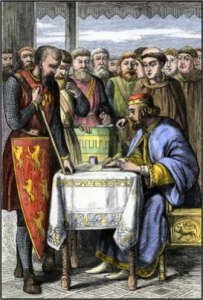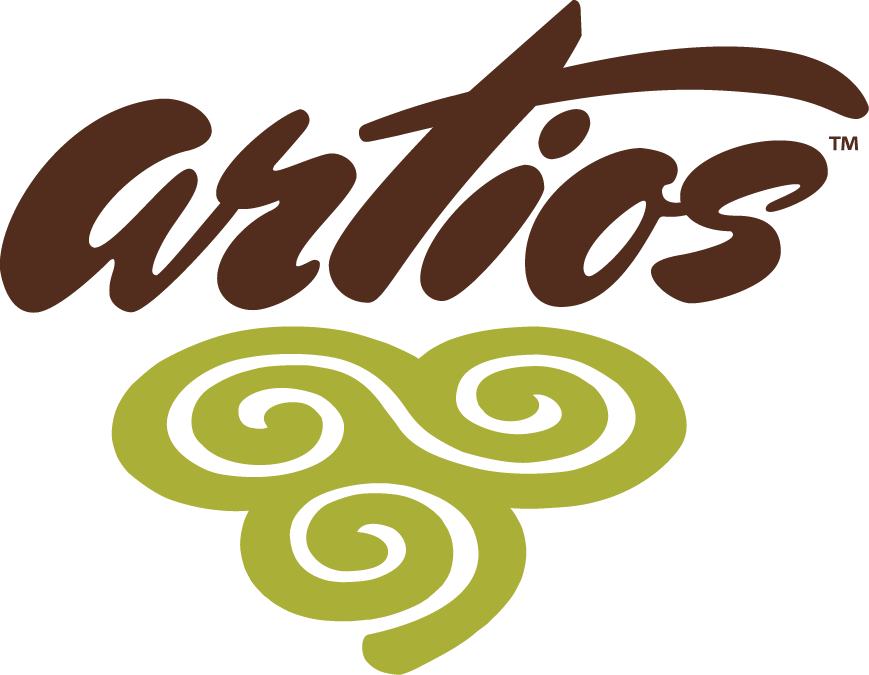[precontent]
[one_third]
Unit 21: The Beginning of Church Reform
[dropcap type=”box”]T[/dropcap]he influence which the Church and its head exercised over the civil government in the Middle Ages was due largely to the absence of strong, efficient rulers who could count upon the support of a large body of prosperous and loyal subjects. So long as the feudal anarchy continued, the Church endeavored to supply the deficiencies of the restless and ignorant princes by striving to maintain order, administer justice, protect the weak, and encourage learning…As the modern state began to develop, difficulties arose. The clergy naturally clung to the powers and privileges which they had long enjoyed, and which they believed to be rightly theirs. On the other hand, the state, as soon as it felt itself able to manage its own affairs, protect its subjects, and provide for their worldly interests, was less and less inclined to tolerate the interference of the clergy and their head, the pope.” – James Harvey Robinson, An Introduction to the History of Western Europe
[/one_third]
[two_third_last]

[/two_third_last]
[/precontent]
[three_fourth]
[box]
[box]
[box_header]
Unit 21 [flag bg_color=”#d6e3bc” text_color=”#9d241a”]High School [/flag]
[/box_header]
[box_content]
Unit Overview
- Subjects Covered
- Grammar, Literature, Competition, History
- Time Period
- Medieval – Renaissance
- Grade Level
- High School: 9-12
- Civilization
- English
- Literature
- Introduction to Renaissance Poetry
[/box_content]
[box_content]
Unit Description
The influence which the Church and its head exercised over the civil government in the Middle Ages was due largely to the absence of strong, efficient rulers who could count upon the support of a large body of prosperous and loyal subjects. So long as the feudal anarchy continued, the Church endeavored to supply the deficiencies of the restless and ignorant princes by striving to maintain order, administer justice, protect the weak, and encourage learning…As the modern state began to develop, difficulties arose. The clergy naturally clung to the powers and privileges which they had long enjoyed, and which they believed to be rightly theirs. On the other hand, the state, as soon as it felt itself able to manage its own affairs, protect its subjects, and provide for their worldly interests, was less and less inclined to tolerate the interference of the clergy and their head, the pope.” – James Harvey Robinson, An Introduction to the History of Western Europe
[/box_content]
[box_content]
Leading Ideas and Biblical Principles
[list type=”arrow”]
- A man’s character is reflected in his leadership. As a man thinketh in his heart so is he. — Proverbs 23:7
- The diligence to “keeping faith” is a revelation of an individual’s character. These are the things that ye shall do; Speak ye every man the truth to his neighbour; execute the judgment of truth and peace in your gates. — Zechariah 8:16
- God does not always call the equipped, He equips those He calls. But God has chosen the foolish things of the world to put to shame the wise, and God has chosen the weak things of the world to put to shame the things which are mighty — I Corinthians 1:27
[/list]
[/box_content]
[box_content]
Key Events, People, and Topics.
- Pope Boniface
- Phillip the Fair
- Clement V
- John Wycliffe
- John Hus
- John of Gaunt, Duke of Lancaster
[/box_content]
[/box]
[box]
[box_header]
Unit 21 Resources: [flag bg_color=”#d6e3bc” text_color=”#9d241a”]High School[/flag]
[/box_header]
[box_content]
[button id=”1″ link=”https://www.artioshcs.com/wp-content/uploads/2016/07/Unit-21-History-High-School-Medieval-Renaissance.pdf” linking=”new-window” size=”medium” type=”simple” title=”maps”]Download History Unit[/button]
[button id=”1″ link=”https://www.artioshcs.com/wp-content/uploads/2016/07/Literature-Units-21-24-High-School-Medieval-Renaissance.pdf” linking=”new-window” size=”medium” type=”simple” title=”maps”]Download Language Arts Unit[/button]
[tabs type=”simple” position=”top-left”]
[tab_title]Literature[/tab_title]
[tab_content]
https://www.msu.edu/course/eng/310a/snapshot.afs/tavrmina/SS97/310h6.htm)
[/tab_content]
[/tabs]
[/box_content]
[box]
[box_header]
[tab_title]Resources[/tab_title]
[tab_content]
VIDEOS ON THIS WEBSITE SHOULD BE PREVIEWED BY PARENTS BEFORE ALLOWING STUDENTS TO WATCH VIDEOS. SOME VIDEOS MAY CONTAIN INFORMATION ON SENSITIVE TOPICS.
Additional Maps:
Complementary Sources:
King Phillip IV and Pope Clement V
Videos:
[/tab_content]
[tab_title]Arts[/tab_title]
[tab_content]
Some Composers:
[/tab_content]
[/box]

Leave a Reply
Want to join the discussion?Feel free to contribute!